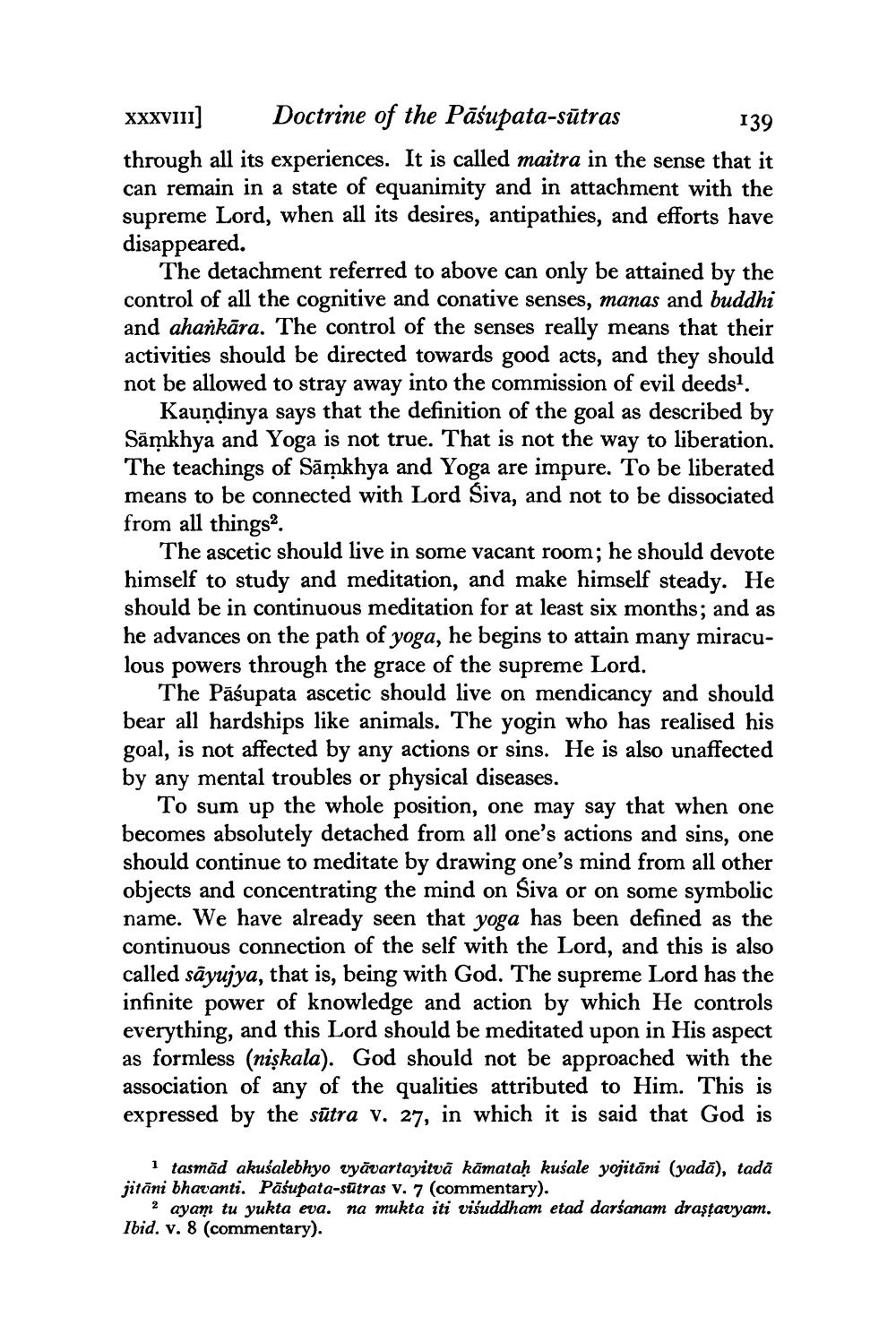________________
XXXV111] Doctrine of the Pāśupata-sūtras
139 through all its experiences. It is called maitra in the sense that it can remain in a state of equanimity and in attachment with the supreme Lord, when all its desires, antipathies, and efforts have disappeared.
The detachment referred to above can only be attained by the control of all the cognitive and conative senses, manas and buddhi and ahankāra. The control of the senses really means that their activities should be directed towards good acts, and they should not be allowed to stray away into the commission of evil deeds!.
Kauņdinya says that the definition of the goal as described by Samkhya and Yoga is not true. That is not the way to liberation. The teachings of Sāmkhya and Yoga are impure. To be liberated means to be connected with Lord Siva, and not to be dissociated from all things.
The ascetic should live in some vacant room; he should devote himself to study and meditation, and make himself steady. He should be in continuous meditation for at least six months; and as he advances on the path of yoga, he begins to attain many miraculous powers through the grace of the supreme Lord.
The Pāśupata ascetic should live on mendicancy and should bear all hardships like animals. The yogin who has realised his goal, is not affected by any actions or sins. He is also unaffected by any mental troubles or physical diseases.
To sum up the whole position, one may say that when one becomes absolutely detached from all one's actions and sins, one should continue to meditate by drawing one's mind from all other objects and concentrating the mind on Siva or on some symbolic name. We have already seen that yoga has been defined as the continuous connection of the self with the Lord, and this is also called sāyujya, that is, being with God. The supreme Lord has the infinite power of knowledge and action by which He controls everything, and this Lord should be meditated upon in His aspect as formless (nişkala). God should not be approached with the association of any of the qualities attributed to Him. This is expressed by the sūtra v. 27, in which it is said that God is
cs.
1 tasmăd akušalebhyo vyāvartayitvā kāmatah kućale yojitāni (yadā), tadā jitāni bhavanti. Pāśupata-sūtras v. 7 (commentary).
2 ayam tu yukta eva. na mukta iti visuddham etad darśanam drastavyam. Ibid. v. 8 (commentary).




